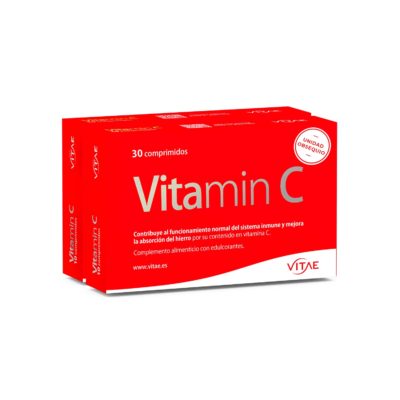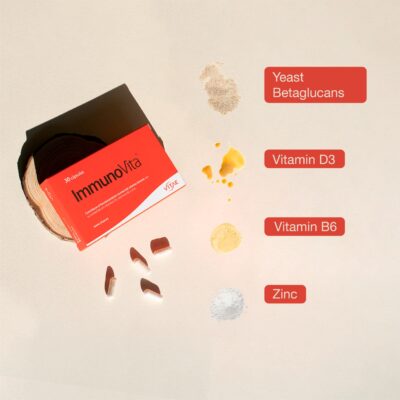As we age, so does our immune system. This natural process is known as immunosenescence, and it’s one of the reasons why older adults become more vulnerable to infections, chronic illnesses, and health complications that are easier to overcome at other stages of life.
Understanding this process is essential to knowing how to protect ourselves. While we can’t stop time, we can take action to preserve our health and well-being for longer.
What Is Immunosenescence?
Immunosenescence refers to the gradual decline of the immune system associated with aging. From around the age of 60, certain key functions of our immune defenses begin to lose effectiveness.
As a result, the immune system becomes slower, less vigilant, and less capable of responding quickly to viruses, bacteria, or even tumor cells.
This decline in immune function with age is associated with a higher incidence of:
-
Recurrent respiratory infections (colds, flu, pneumonia)
-
Reactivation of latent viruses such as shingles (herpes zoster) or cytomegalovirus
-
Reduced vaccine effectiveness
-
Slower recovery from common illnesses
-
Increased risk of chronic diseases linked to inflammation (type 2 diabetes, atherosclerosis, cognitive decline)
That’s why it’s so important to act before clinical problems appear.
Can Immunosenescence Be Slowed Down?
The answer is yes. While we can’t stop aging, there are effective strategies to slow the deterioration of the immune system by incorporating healthy habits into our routine. This can make the difference between passive and active aging—with better health and lower risk of infection.
The earlier we start taking care of our immune system, the better prepared we’ll be in the future. Because immunosenescence doesn’t happen overnight—it’s a gradual process that begins years before its effects become noticeable. Keeping our defenses strong is not just about preventing disease, but about maintaining long-term quality of life.
What Should You Include in Your Daily Life to Slow Immunosenescence?
Adopt an active lifestyle
Walking, swimming, or engaging in moderate exercise regularly improves immune surveillance and reduces systemic inflammation.
Prioritize an anti-inflammatory diet
Fruits, vegetables, healthy fats (such as extra virgin olive oil), and proper hydration help keep the immune system balanced.
Maintain a healthy weight
Obesity accelerates immunosenescence by promoting chronic inflammation that wears down immune defenses.
Support Your Immune System With a Routine Adapted to Your Life Stage
As time goes by, caring for your immune health is key to enjoying an active, independent, and healthy life. Each stage of life brings different challenges—and different ways to take care of yourself. Establishing routines that help you feel better and maintain daily well-being will support your health and keep you moving.
At certain times, you can complement your habits with supplements such as ImmunoVita®, which contains next-generation beta-glucans to naturally boost and strengthen the immune system.
To help protect against cellular aging, free radicals, and oxidative stress, and to support immune activity in the face of recurrent infections, Bi·Bran® is a patented immunomodulator made from arabinoxylan.
Immunosenescence is a natural process—but it doesn’t have to limit you. Understanding how your body’s needs change with age is the first step in making informed decisions about your health.







